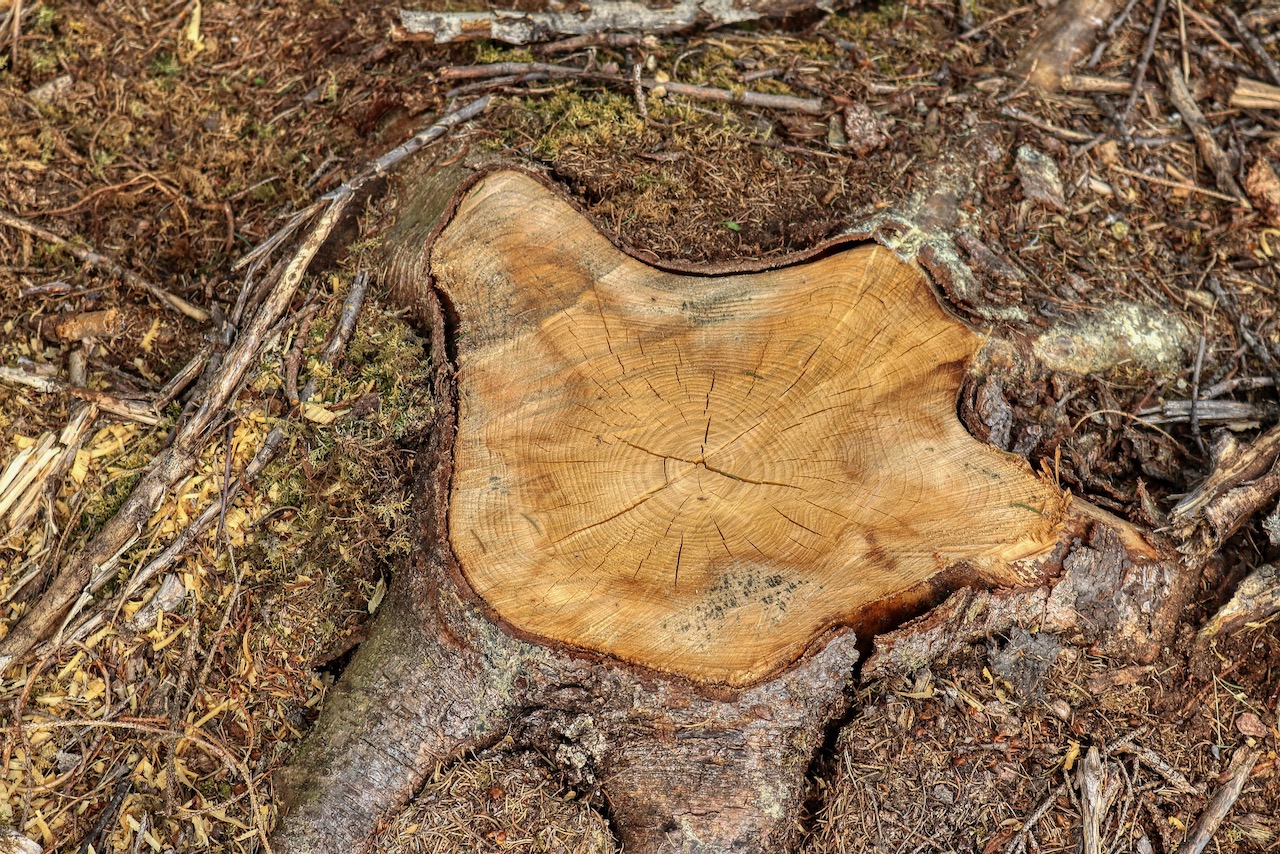For Our Sake...He Was Cut Down
March 23, 2022
And he [Jesus] told this parable: “A man had a fig tree planted in his vineyard, and he came seeking fruit on it and found none on it” (Luke 13:6 ESV). Our theme for Lent, For Our Sake, helps us meditate on our Savior’s suffering and death for us. Today at International Lutheran Church, God’s Word digs into our lives, calling and inviting us to a life of repentance so that real change and real fruit can be found in our lives.
Each tragedy, personal or collective, has the potential to cause us to ask some pretty hefty questions. These tragedies, whether intentional or seemingly random occurrences, often set in motion a series of dominos that end in questioning the nature and goodness of God. I only need to recall a few like 9-11, or the Indonesian Tsunami of 2004, or the ToHoKu Earthquake of 2011, the Bosnian War of 1992-95, Pol Pot and the Khmer Rouge, or even something like the bombing this week of a theater-turned-refugee center for children in Mariupol, Ukraine. Each of these has the same immediate effect in making us question “why?” Had they done something wrong to deserve this? Not surprisingly, the same questions were common in Jesus’ day. In Luke 13:1-9 we read about certain people that come to Jesus with the news flash of the Galileans whose blood was mixed with their sacrifices by Pilate, and the presumable question, “What did they do to deserve such a fate?” Or what about the 18 people killed by the tower in Siloam that fell on them. Did they “deserve” it?
Years ago, when I was serving in Taiwan together with another Chinese pastor as chaplains at a Lutheran school, we regularly worked with both the students, staff and teachers through a number of life’s challenges. One day we faced the tragic news of the death of the brother of one of our math teachers. We went together with her to visit her parents. They ran a little mattress shop in a very small rural village. I was shocked to learn that they were required to post a sign warning neighbors and customers to stay away because they had had a tragedy in their family. Not only did they have to grieve the loss of their only son but they also had to do it alone. The local belief was that they had a bad spirit, and that this was why they were being “punished.” It may sound cruel, but don’t we all fear getting too entangled in the “messiness” of other people’s lives sometimes? Even we as Christians are sometimes tempted to wonder what good or bad we have done to “deserve” whatever we are going through.
Jesus’ reply is important, both His emphatic and clear denial of the connection between our sin and the circumstances of our life, but also the revealing parable that really digs into our personal lives. First the emphatic response: No! Jesus clearly denies the relationship between tragedy and sin. He does not say, though, that they were innocent. Neither does He announce our innocence as the basis for God’s goodness. No, in fact, He goes on to point out that the Hell we fear is real. Unless we repent, turn aside from our wrong thinking and acting, we too will face this finality. To further elaborate this point, Jesus offers up a parable to point to both our sin and our Savior. He tells the story of a vineyard and a fig tree that is unproductive for three years. What keeps the tree alive is the plea of the caretaker, who asks one more chance at change, real change. Through His effort, and His alone, the fig tree will be spared. Jesus is pointing to the truth of repentance that it is not a product of our own effort, but of His. He must dig and lay down the only thing that can make it change - His own life.
Jesus’ words reveal just how far He will go to bring about the fruit of repentance in your life and mine. FOR OUR SAKE, He was cut down on the cross. He suffered the full and final consequences of our willing disobedience and actions. He answered our questions of the “goodness” of God, and “Where is God in _____________ (fill in the blank with whatever tragedy you are facing right now)?” with His very life. He became “manure,” something to be tossed out, and was planted in the tomb so that you and I would spring forth in a new life in Him. Just as the cherry blossoms are about to burst forth, so God’s grace is working in you and me to burst forth with the fruit of repentance. Repentance is a daily thing we do as Christians, not just when we come together for the Divine Service. Luther says we make the sign of the cross in the morning and at night knowing that we are redeemed and made right by Jesus Christ and Him alone through His death for our sake. This is the “news” we need to share. This is the “news” our kids need to hear. This is the “news” your neighbors and co-workers need lived out in your life and mine.
This last week, March 17th was the 60th anniversary of the Lutheran Service Center which grew and developed to be International Lutheran Church. We were planted in this place to be a place of true repentance and growth. A place where people from around the world would hear the saving news of Jesus’ death for them. This was to be a place where we would regularly celebrate and receive as Jesus instituted it in His Word and Promise, Holy Baptism and Holy Communion. You and I are a part of His action to bring the fruit of repentance in this place. To God be the Glory.
Pastor Carl
